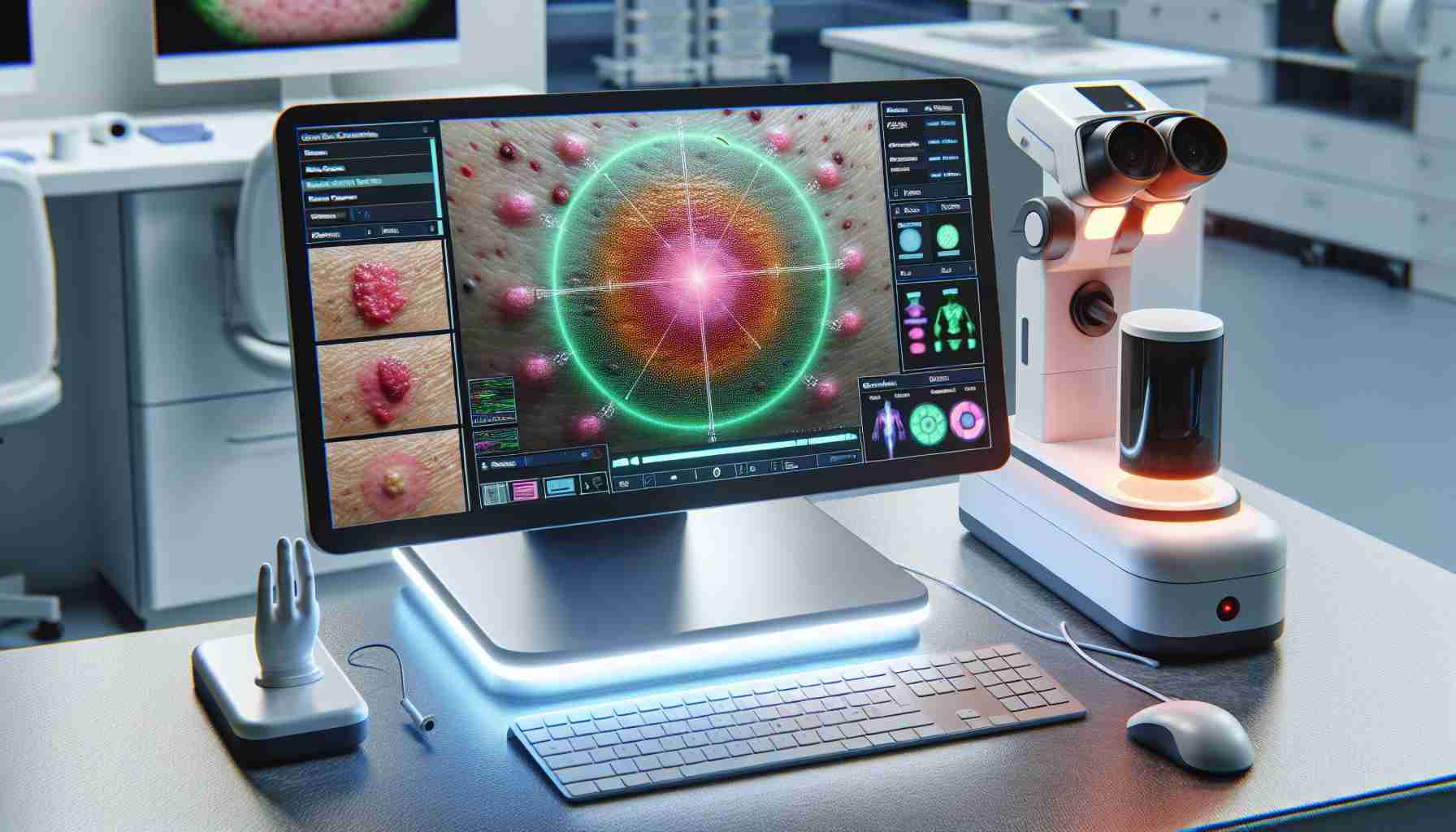An advanced artificial intelligence (AI) system with 92 cameras has been introduced at a local hospital, revolutionizing the early detection of skin cancer. Katrina Barger, a fair-skinned patient with numerous moles, recently benefited from the technology, signaling a significant leap forward in dermatological care.
Since middle school, Barger has been monitored for precancerous moles, yet no serious concerns had been raised until a melanoma was detected on her knee at the age of 26. To manage her condition, Barger visits a dermatologist every three months. Her latest examination featured the use of a new whole-body imaging system at West Penn Hospital, making her the first to experience this cutting-edge device, which is currently one of only fifteen in the United States.
The AI system, known as Vectra, identified 745 moles on Barger’s body, presenting a considerable challenge for manual tracking by her and her medical team. Impressively, it also pinpointed a cancerous spot that had previously gone unnoticed.
Allegheny Health Network has been integrating AI into various medical domains like radiology and sepsis prediction for over five years. Dr. Ashis Barad, the Chief Digital Information Officer, emphasized the sophistication of AI in improving patient care while remaining largely invisible to patients. The network also anticipates deploying AI systems to preemptively alert staff of potential patient falls.
UPMC shares a similar vision for AI applications in medicine. This includes an app for diagnosing ear infections and AI systems for recognizing strokes, diabetic retinopathy, and prostate cancer. Dr. Rob Bart, Chief Medical Information Officer at UPMC, predicts substantial growth in AI’s clinical role, enhancing rather than replacing the human element in medical decision-making.
Barger fully trusts AI after her experience, crediting it with saving her life. The Vectra scan, while not covered by insurance, costs $250 and is recommended annually—a small price, according to Barger, for potentially life-saving technology.
Key Challenges and Controversies:
One of the major challenges with employing AI imaging systems like Vectra in clinical settings is ensuring their accuracy and reliability. These systems must be trained on diverse datasets to accurately recognize various skin types and cancer manifestations. There is also the potential for biases in AI algorithms if they are not properly vetted, potentially leading to misdiagnosis in underrepresented populations.
Another controversy relates to the high cost of such systems and the expense of the scans, which may not be covered by insurance. This raises concerns about access and equality in healthcare, as potentially life-saving technology might be financially out of reach for some patients.
Advantages:
The introduction of advanced AI systems for early detection of skin cancer offers numerous advantages:
– Early Detection: AI systems like Vectra can analyze a vast number of moles quickly and accurately, leading to early detection of melanomas, which significantly increases survival rates.
– Consistency and Efficiency: AI technology can provide consistent monitoring and reduce the likelihood of human error, which is vital given the difficulty in tracking large numbers of moles over time.
– Time-Saving: It reduces the time it takes for dermatologists to examine patients, allowing for more patients to be checked and, potentially, more cancers to be caught early.
Disadvantages:
– Cost: The technology and the scans can be expensive, and they might not be covered by health insurance, limiting their accessibility.
– Reliability: Depending on the system’s training data, there might be concerns about accuracy, especially for skin types or cancer types that are less common or were underrepresented in the training set.
– Depersonalization: Increasing reliance on technology can potentially reduce the face-to-face interaction between patient and physician, which is an important aspect of patient care.
For those interested in reading more broadly about AI in healthcare and its potential for early detection of various diseases, including skin cancer, you can visit the websites of health research institutions or tech companies working in the field:
– National Institutes of Health (NIH)
– Mayo Clinic
– IBM Watson Health
– DeepMind Health
It should be noted that while innovative AI systems hold great promise in healthcare, their role should be to augment and enhance the capabilities of healthcare professionals rather than to replace them. The goal is to harness the power of AI to provide more effective, efficient, and accessible medical care.
The source of the article is from the blog elperiodicodearanjuez.es
